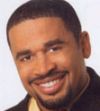These 12 trend-setting music ministers have one aim-to bring listeners to a deeper place of worship.
BY: Jomili Noble
The Christian musicians profiled below are part of a growing number of popular artists who are using their talents to serve others by both entertaining through their art, and spreading the word of God.Vicki Yohe
 About seven years ago, worship leader Vicki Yohe had an epiphany. “It hit me: [God is] actually in the room [during worship],” she says. “When I begin to magnify the King of kings, things I say to Him can cause Him to rise to His feet.”
About seven years ago, worship leader Vicki Yohe had an epiphany. “It hit me: [God is] actually in the room [during worship],” she says. “When I begin to magnify the King of kings, things I say to Him can cause Him to rise to His feet.”She says that revelation has changed her outlook on worship—and life. “I often say this at my concerts: ‘The miracle that you need in your life is on the other side of your worship. If you knew what was on the other side, you’d go ahead and press. You’d forget about how tired you are or what you’ve been through.’”
Yohe, 40, grew up singing in her father’s church, in a gospel-influenced style that still marks her music. Though her song “Mercy Seat” was wildly popular during the Brownsville Revival, she didn’t begin to see six-figure record sales until her music was marketed to gospel radio stations.
Today she ministers mostly in African-American churches, which she believes is part of God’s plan to break down the walls between black and white Christians.
Last year, Yohe began a new chapter in her life and ministry when she and her husband, Troy Hodges, opened an orphanage in Jinji, Uganda. The couple also welcomed their first child, Walker Winston Hodges, a biracial baby boy they adopted through Ohio pastor Darlene Bishop’s Home for Life.
Yohe says her ministry vision is simple: “I’m there [in churches] to lead people into the presence of God,” she says. “When you realize He’s in the building, it changes your life.” David Crowder
 If you believe science and worship are incompatible, David Crowder might make you think twice. He began leading worship with the David Crowder Band (DCB) in 1996, when the group of former Baylor University students helped found University Baptist Church in Waco, Texas, in an effort to reach college students who were disenchanted with the church.
If you believe science and worship are incompatible, David Crowder might make you think twice. He began leading worship with the David Crowder Band (DCB) in 1996, when the group of former Baylor University students helped found University Baptist Church in Waco, Texas, in an effort to reach college students who were disenchanted with the church.Since signing a record deal with Sixstepsrecords in 2002, DCB has become one of the nation’s leading worship bands, touring with Michael W. Smith, MercyMe and Third Day, and participating in various Passion projects including the live recording, Passion: Everything Glorious, which released in April.
The band is known for its open lyrics and unique alternative-rock sound, but DCB’s appeal among both churched and unchurched 20-somethings may be linked to its use of science and technology. In its Illuminate album, DCB translates science about the physics of light into revelation about God and creation. With that release, the group also packaged software that enabled fans to mix their own tracks at home.
DCB drew inspiration for its newest project, A Collision, from a book on atomic energy, and the entire recording was documented on the Internet through the use of webcams. When the CD was complete, DCB invited all the fans who had watched the process online to a celebration barbecue at Crowder’s home.
Crowder believes this type of modern interaction can change the face of worship. “My hope for worship … is this: A kid can record a record in his room and share it with his friends—I want that to be able to happen in the church,” Crowder says. “Something put together on a computer and suddenly it’s sitting on someone else’s desktop miles and miles away. It could be huge for unity in the church.”
Israel Houghton
 A full-time minister since 1989, Israel Houghton is known for his dynamic, cross-cultural praise songs. When he’s not touring with New Breed, the worship band he co-founded, the 35-year-old father of three can be found leading worship at Lakewood Church in Houston.
A full-time minister since 1989, Israel Houghton is known for his dynamic, cross-cultural praise songs. When he’s not touring with New Breed, the worship band he co-founded, the 35-year-old father of three can be found leading worship at Lakewood Church in Houston.But whether at home or on the road, Houghton is sharing a new outlook on worship, which he gained after a season of “unlearning” what “normal” church was.
“Having grown up in the church and seeing some fairly legalistic ways of doing church, I had a somewhat shallow view of worship,” he says. “I thought worship was where you just sing some songs telling God how great He was and ask Him for help with some problem, and that was it.
“I started understanding what it meant to be a friend of God, and it changed my whole view of worship. We have the privilege of talking with God and hearing Him speak to us. It’s not a monologue.”
Today Houghton says he’s writing more declarative songs, such as “Friend of God” and “No Limits,” which he says is helping to build listeners’ faith. “People are saying, ‘The more I say [the song lyrics], the more I believe it, the more I’m walking it out,’” he says. “I have a tremendous responsibility as a worship leader to write the words people wish to say.”
Kurt Carr
 Although he was not raised in a churchgoing family, gospel artist Kurt Carr started attending services on his own at the age of 13 and eventually got involved in music ministry. He found a mentor in gospel artist Richard Smallwood and later worked with gospel music pioneers James Cleveland and Andraé Crouch.
Although he was not raised in a churchgoing family, gospel artist Kurt Carr started attending services on his own at the age of 13 and eventually got involved in music ministry. He found a mentor in gospel artist Richard Smallwood and later worked with gospel music pioneers James Cleveland and Andraé Crouch.Today, after spending 12 years as creative music director at West Angeles Church of God in Christ, Carr and his ensemble, the Kurt Carr Singers, are prominent in their own right, having popularized such songs as the Grammy-winning “For Every Mountain” and the international hit “In the Sanctuary.”
In 2005 Carr broke from his typical style of contemporary gospel to create One Church. With help from a South African choir, an Armenian accordionist and Scottish bagpipers Carr introduced an exotic blend of musical styles ranging from classical to R&B to tango.
“It was very important to me to draw on the talents of people with different races, ages, nationalities and doctrinal backgrounds—all to solidify the theme and the truth that we are one church in Christ,” Carr says. “Worship isn’t black or white; worship is universal.”
Jason Upton
 Jason Upton isn’t a household name, but that’s OK with him. “Worship is intimate, vulnerable and non-manipulative,” says the Milwaukee-based worship leader. “I don’t try to conjure up anything, even a response from people.”
Jason Upton isn’t a household name, but that’s OK with him. “Worship is intimate, vulnerable and non-manipulative,” says the Milwaukee-based worship leader. “I don’t try to conjure up anything, even a response from people.”Upton, 32, has been singing in churches since he was 15. He started leading worship in a small room in his house with family and friends. Then in 2000, he was recognized nationally when he sang at The Call prayer event in Washington, D.C. Today, he has released seven worship recordings that are all marked by his energetic piano playing and extended improvisational lyrics. And he is working on a new project that is scheduled to release this fall.
Although he doesn’t have any radio “hits,” he says his songs are significant for other reasons. “I like honest, raw and real music, music that tells the truth,” he says.
Upton emphasizes this message on the CD Dying Star. “Stars rise and fall, but sons don’t,” he says. “God has raised up a generation of sons and daughters, not a generation of superstars. But as long as we continue trying to be ‘someone’ or ‘something’ we will never be anything of worth to God.”
Judith Christie-McAllister
 After serving as worship leader at West Angeles Church of God in Christ for 17 years, Judith Christie-McAllister moved to Nashville, Tennessee, to begin teaching others about praise and worship.
After serving as worship leader at West Angeles Church of God in Christ for 17 years, Judith Christie-McAllister moved to Nashville, Tennessee, to begin teaching others about praise and worship.“I believe that the ultimate form of worship is walking in the purpose for which God has created the individual,” she says of the transition. “Discover what God has preordained for you to be and walk fully in it. There you will find worship.”
Christie-McAllister developed a passion for praise and worship in the 1980s as a student at Oral Roberts University. Since then she has been featured on five West Angeles recordings, including the popular Saints in Praise series, and has released three albums of her own.
She says the completion of her latest project, In His Presence, a live recording finished in just two months, has reminded her of God’s faithfulness to accomplish His plans. “The quickness with which this project came to be is a testament to what the Lord is doing in these final days,” she says. “I want to encourage my fellow siblings in the Lord that what they have been believing God for will manifest with an intense velocity as they remain in His presence.”
Marco Barrientos
 Mexican worship leader Marco Barrientos abandoned his dream of becoming a veterinarian when he dedicated his life to Christ at the age of 17. That’s when he sensed God calling him into music ministry—and he hasn’t stopped singing since. “Singing became the main way for me to connect with the presence of God,” he says.
Mexican worship leader Marco Barrientos abandoned his dream of becoming a veterinarian when he dedicated his life to Christ at the age of 17. That’s when he sensed God calling him into music ministry—and he hasn’t stopped singing since. “Singing became the main way for me to connect with the presence of God,” he says.Now after releasing 26 CDs and receiving a Latin Grammy Award nomination last year for Viento + Fuego (Wind + Fire), he plans to release his first English project, Joy in Your Presence, this month. “My two passions in life are leading people in worship and sharing the principles of the gospel in an applicable, practical way,” says Barrientos, who also is pastor of Centro Internacional Aliento in Dallas.
Still, the 43-year-old father of two is best known for his dynamic praise and worship music, which is infused with rhythmic Latin percussion. He believes worship should be spontaneous and led by the Spirit.
“Nowadays there are many churches where worship time has become three praise songs, one midtempo song and three worship songs,” he says. “Everything is so firmly structured. … It’s like we’ve planned and premeditated everything to the point where there is no room left for a spiritual expression of worship.
“To sing a new song is to sing a prayer to the Father. … It’s something that comes from the heart at that moment we are worshiping.” LaMar Boschman
 In the late 1970s when LaMar Boschman first began leading worship, most of the choruses sung in charismatic churches were what he calls “horizontal”; they talked about God, not to God. From that time until the present, he has been committed to teaching people the purpose for worship through his worship albums, books and the International Worship Institute (IWI) he founded 20 years ago next month. “It’s not the art, it’s the heart,” Boschman says. “What [God] reads during our worship is the inner attitude. Worship is spiritual; it’s organic; it’s relational.”
In the late 1970s when LaMar Boschman first began leading worship, most of the choruses sung in charismatic churches were what he calls “horizontal”; they talked about God, not to God. From that time until the present, he has been committed to teaching people the purpose for worship through his worship albums, books and the International Worship Institute (IWI) he founded 20 years ago next month. “It’s not the art, it’s the heart,” Boschman says. “What [God] reads during our worship is the inner attitude. Worship is spiritual; it’s organic; it’s relational.”Based in Texas, IWI holds worship seminars all over the world, with one weeklong master course held annually. Former instructors make up a who’s who of worship leaders, including Israel Houghton, Paul Baloche, Matt Redman, Darrel Evans and Chris Tomlin. More than 50 alumni are expected to participate in IWI’s anniversary conference in Dallas July 3-7.
Boschman remembers when worship didn’t get widespread radio airplay and have top-selling CDs. And though there is good in that trend, he cautions against viewing worship as a style of music. “It’s not tangible; it’s an attitude of the heart,” he says. “We need to get back to our innocence. Remember: Worship is spiritual. … You gotta mean it. You haven’t prepared yourself for worship if you just practice art.”
Danilo Montero
 Considered one of Latin America’s Christian music pioneers, Danilo Montero has recorded more than 17 albums since he began leading worship at the age of 20, and he plans to release two more this year. Now 43, the Costa Rican singer leads pop-rock worship at concerts worldwide and is known for intense praise and worship songs such as “El Es El Rey” (He Is the King), “La Casa De Dios” (God’s House) and “Eres Todopoderoso” (You Are Almighty).
Considered one of Latin America’s Christian music pioneers, Danilo Montero has recorded more than 17 albums since he began leading worship at the age of 20, and he plans to release two more this year. Now 43, the Costa Rican singer leads pop-rock worship at concerts worldwide and is known for intense praise and worship songs such as “El Es El Rey” (He Is the King), “La Casa De Dios” (God’s House) and “Eres Todopoderoso” (You Are Almighty).Montero lives in central Florida, where he leads Sígueme (Follow Me), a music production company he started in 1983. Also a ministry, Sígueme organizes international worship retreats to inspire and motivate leaders in the Hispanic church.
Montero grew up with a physically abusive father, and he believes he’s called to use his music to bring restoration to broken hearts. “I want people to get closer to God, I want them to know that He’s near and I want them to love and follow Him,” he says. “I desire the healing of hearts that have been hurt by the past.”
Montero says he thanks God for healing his own heart and helping him to forgive his father. He says he values the peace and stability deliverance from a broken heart can bring and desires that freedom for all Christians. Says Montero: “The music, dancing and lights don’t mean anything if they don’t lead us to a change of heart.”
Rita Springer
 Between spending time with her new baby and singing at international conferences, Rita Springer says she doesn’t have time for flashy, artificial worship. “It’s about relationship,” she says, “and if I’m going to tell the Lord I love Him, I’m going to do it with all I have.”
Between spending time with her new baby and singing at international conferences, Rita Springer says she doesn’t have time for flashy, artificial worship. “It’s about relationship,” she says, “and if I’m going to tell the Lord I love Him, I’m going to do it with all I have.”The passionate alto is celebrated for her genuine, personal expression heard in songs such as “You Said” and “Oh How You Love Me” from her All I Have album. Besides playing the piano and writing songs, the 38-year-old Texas-based vocalist can be found leading worship at Fragrant Oil conferences, a women’s ministry she started in 2000. But Springer believes worship is about much more than music; it’s about obedience. In May 2004, she felt God calling her to adopt.
After months of struggling with the idea of being a single mom, Springer realized, “When you say yes to God, a supernatural thing is released.” So on December 1, 2004, Springer welcomed her African baby boy, Justice, into her life. “He teaches me about worship,” she says of her 18-month-old son. “You can call yourself a worship leader, but who do you worship? God said, ‘If you worship Me, you’ll obey Me.’”
Her latest project, I Have to Believe, is all about declaring faith in God’s promises. “The Bible says that you must believe,” she says. “It’s not optional, and that belief includes moving and taking steps that you don’t understand.”
Joel Houston
 Although the church his parents pastor is famous for its music ministry, Joel Houston didn’t intend for its youth group to make records. “The reason we first recorded a United album in 1999 was simply that there was an overflow of songs being written by the youth,” he says.
Although the church his parents pastor is famous for its music ministry, Joel Houston didn’t intend for its youth group to make records. “The reason we first recorded a United album in 1999 was simply that there was an overflow of songs being written by the youth,” he says.Each week some 3,000 young people participate in United, the youth ministry of Hillsong Church based in Sydney, Australia. And while Houston, 26, provides creative oversight, he says all the youth help produce the live worship projects that are recorded annually during Hillsong’s Encounterfest youth conference.
“Our desire is to ... see the younger guys in our team equipped and released into their gifting,” says Houston, son of Hillsong pastors Brian and Bobbie Houston. “We want the younger generation to be taking what we’re doing and make it seem tiny in comparison to what they are achieving for God in the years to come.”
Even though the group leads worship in places such as Japan, England and Colombia, United’s priority is Sydney. “All we do is centered on building our local church and reaching the youth in our community,” Houston says. “This has always been our focus. And the incredible thing is, in the midst of this God has opened the door for us to have incredible influence by His grace across the earth.”
Byron Cage
 Byron Cage knows a thing or two about blazing trails. In 1987, when he began working at New Birth Missionary Baptist Church in Atlanta, he says even its pastor, Bishop Eddie Long, had never heard of a praise team. Cage was given the opportunity to lead worship, but churchgoers accustomed to singing traditional hymns were uncomfortable with the idea. “People said we were trying to be a white church … but you know, worship has no color,” Cage says. “Worship is the lifestyle of someone who wants to be closer to God.”
Byron Cage knows a thing or two about blazing trails. In 1987, when he began working at New Birth Missionary Baptist Church in Atlanta, he says even its pastor, Bishop Eddie Long, had never heard of a praise team. Cage was given the opportunity to lead worship, but churchgoers accustomed to singing traditional hymns were uncomfortable with the idea. “People said we were trying to be a white church … but you know, worship has no color,” Cage says. “Worship is the lifestyle of someone who wants to be closer to God.”Today Cage is known for his role in popularizing praise and worship among mainline African-American churches. His song “Shabach” helped advance the Full Gospel Baptist Church Fellowship movement. Today Cage has recorded four albums and juggles leading worship at both New Birth and Ebenezer A.M.E Church in Maryland. But he doesn’t complain. “This is my calling,” he says, “to create songs of worship that people all over the country can sing in a genuine desire to enter into His presence.”



Tidak ada komentar:
Posting Komentar